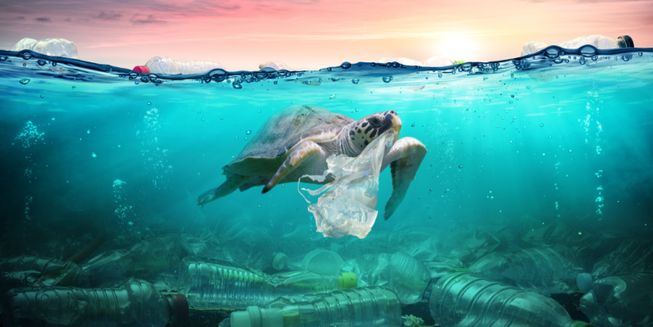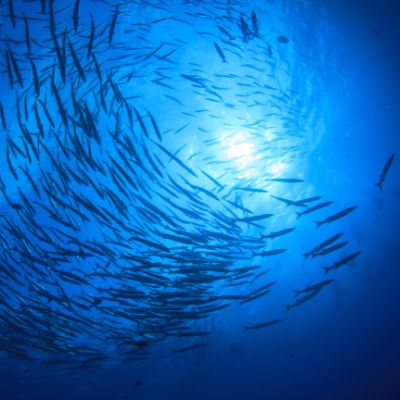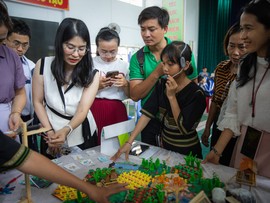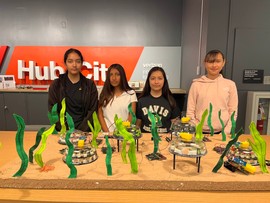Free teaching resource, Life Below Water
Use our new teaching resource Life Below Water to inspire your students to invent tech for healthy oceans
We have produced a new teaching resource, Life Below Water. Free to download, you can use it as a launchpad for entering the do your :bit micro:bit global challenge, or in geography or science lessons for children aged eight and above.

This new resource gives you opportunities to discuss:
- marine pollution
- illegal fishing
- ocean acidification
- the conservation of coastal and marine areas
Be inspired by last year’s do your :bit entries
In 2021, students from around the world came up with innovative tech solutions to protect the environment. Here are some of the ideas they submitted to the do your :bit challenge:
Protecting birds’ nests from rising river water levels
Birds’ nest guardian
Cheng-En, Ko-Hsin and Zi Qing in Taiwan designed a device to protect birds’ nests from rising river water levels.
The students realised that rapid climate change was contributing to rising water levels in Taiwan, putting birds who previously relied on the river for their habitats in danger. Using the BBC micro:bit, they made the “Best birds guardian”, which senses rising water and pulls the birds’ nests to safety on the river shore.
Read more on the ‘Best birds guardian”
Solar-powered electric boat prototype
Arieh and Samuel test their prototype in a pool.
Arieh and Samuel in Costa Rica created a 3D-printed solar-powered boat prototype.
As children growing up in a country with coastlines on the Pacific and Caribbean, Arieh and Samuel are learning about the impacts of fossil fuels on their local environment and the global climate. They built their boat prototype to demonstrate the possibilities of the use of renewable "green" energy in marine transport.
Read more about Arieh and Samuel’s entry
Device to prevent overfishing

Julia, do your :bit runner up

15-year-old Julia from the United States created a prototype device to record the amount and type of fish caught by fishermen.
Julia used the micro:bit’s buttons to enter information which was stored in a list, and its radio function to broadcast the information to another micro:bit in a different location. She hoped her device could help communities around the world by preventing overfishing.
She said, “Technology in the future is going to change the world, and it’s up to me and people like me to make sure it changes for the better.”
do your :bit
The do your :bit challenge adds social purpose to digital learning and allows students to apply their digital skills to real world solutions. The competition is open until 15 July 2022.


